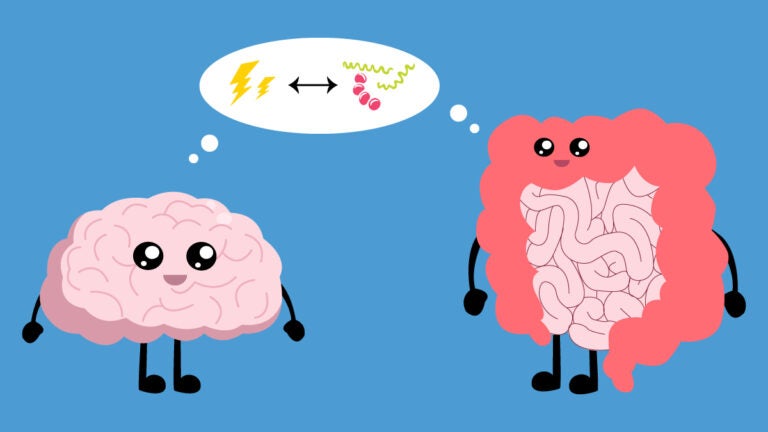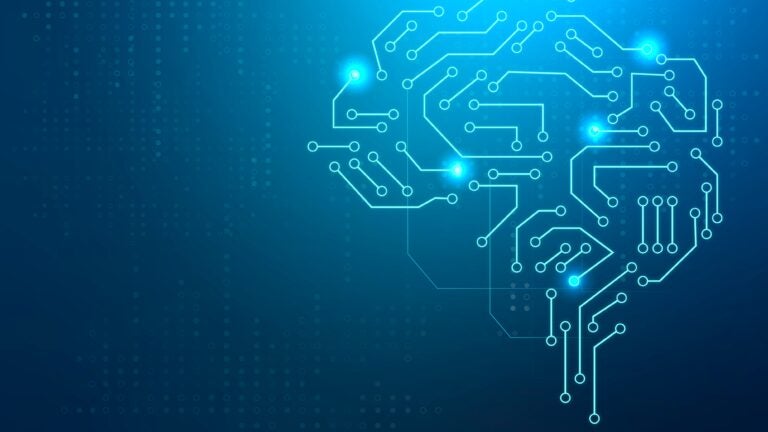Exploring the A-Z of social cognitive neuroscience
The Center for the Neuroscience of Embodied Cognition (CeNEC), formerly known as the A-Z Lab, explores the idea that rudimentary sensory-motor areas may be intrinsically involved in processing aspects of higher cognition such as language, thought, emotions, empathy, and social communication.

Explore our current studies
Read about the various ongoing studies at the CeNEC lab
Relationship between the Gut Microbiome, the Brain, and Behavior
The gut has three times more neurons than the spinal cord, and most of those connections send information from the gut to the brain. Much of the signaling in the gut comes from metabolites produced by the gut microbiome. However the relationship between the gut microbiome, the brain, and behavior is poorly understood. Here we try to better understand this relationship in both typically developing individuals as well as individuals with ASD. This work was supported by a grant from the Department of Defense.
AI Tropes and the Human Mind: A Neuroscience Perspective
While the advent of AI, such as Google Gemini and ChatGPT, will undoubtedly result in numerous benefits, it also brings growing concerns. The purpose of this project address a subset of concerns from the perspective of neurobiology in the form of experimental studies and analyses. The goal is to answer the following questions:
Do the concerns have any merit?
What is the likely origin of the concerns?
Assuming the concerns are well founded, what can be done to counter them?
Approaching AI concerns from a scientific perspective is a strong framework to better understand them and, hopefully, ameliorate them. Furthermore, a better understanding of these issues will help AI remain a safe operating space. The long-term goal is to help determine AI designs that don’t impinge on users’ feelings of privacy, trust, and attribution of mind/feelings to AI. Another important goal is to help design AIs that are powerful and important tools, without impinging on users’ feelings of lack of competence, meaning, and purpose in life.
Otherness and Belonging
Belonging is a fundamental relationship grounded in the interaction between an organism and its world. It is always a multi-directional relation where the world includes the social, physical, emotional, and cultural environment available to the organism. For human beings, belonging is a critical factor both in the creation and in the perception of meaning in life. It is just as important as food or water for our survival and well-being. A lack of belonging is an existential breakage in a human being’s relationship to their environment and to the world and is a fundamental human need (Maslow, 1943).
Embodied Semantics and Communication
Most of our metaphors are embodied: we “handle” situations; we “kick-off” a new year; we “chew over” decisions. Using fMRI and behavioral studies we explore how language processing involves sensorimotor brain representations. We investigate both literal and metaphorical language. This work has been funded by IARPA and NIH.
From Sensory-Motor to Social in Autism Spectrum Disorder (ASD)
Children with ASD often have both motor and sensory deficits in addition to the social deficits that are the hallmark of the disorder. However the neurological basis of how those sensorimotor deficits relate to the core social deficits is poorly understood. Here we compare motor deficits in ASD to motor deficits in Developmental Coordination Disorder (DCD). Similarly, we compare sensory deficits in ASD to sensory deficits in Sensory Processing Disorder (SPD). In this way, we hope to better understand the relationship between sensory-motor processing to social deficits in ASD. This work was supported by an NIH R01 grant.
Neuroimaging techniques
The CeNEC examines social cognitive neuroscience questions through the utilization of brain imaging techniques such as functional magnetic resonance imaging (fMRI), diffusion tensor imaging (DTI), transcranial magnetic stimulation (TMS), and electroencephalography (EEG)

Interested in being a Research Assistant at the lab?
Please fill out this form if you are interested as working as a volunteer at the CeNEC lab
Interested in being a participant at the lab?
Please fill out these forms if you are interested in being a participant for any studies you are eligible for at the CeNEC lab!

The Brain and Creativity Institute
The CeNEC operates at the Brain and Creativity Institute located at USC’s University Park Campus just 3 miles from downtown Los Angeles.
Principal Investigator
Dr. Lisa Aziz-Zadeh is a Professor at the Brain and Creativity Institute, the Department of Psychology, and the Chan Division of Occupational Science and Occupational Therapy at the University of Southern California (USC). She is the director of the USC Center for the Neuroscience of Embodied Cognition.

Learn more about the lab
Contact Us
Brain and Creativity Institute
3620A McClintock Avenue Los Angeles, CA 90089-2921
Center for the Neuroscience of Embodied Cognition
3620A McClintock Avenue Los Angeles, CA 90089-2921





